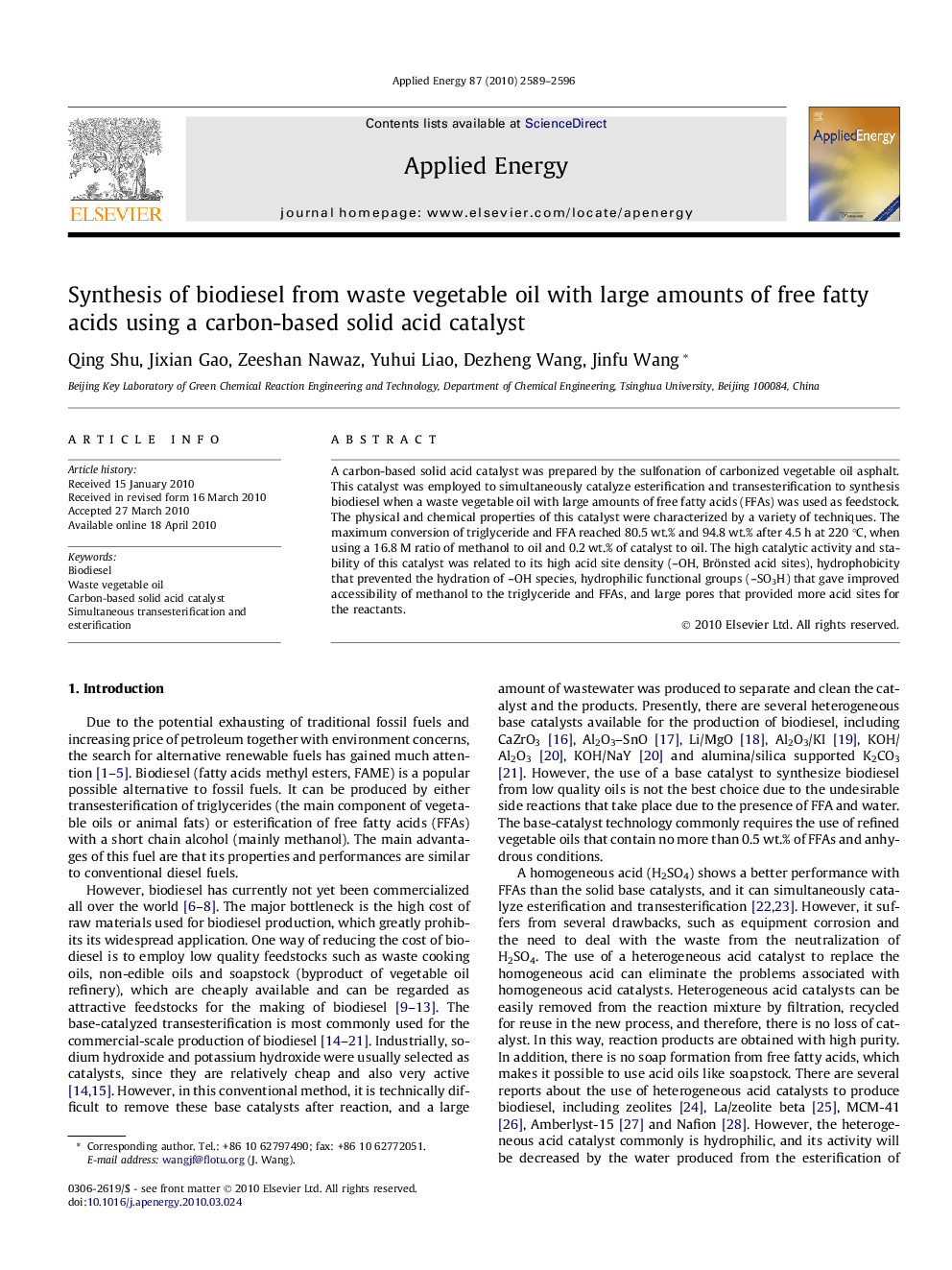| Article ID | Journal | Published Year | Pages | File Type |
|---|---|---|---|---|
| 244340 | Applied Energy | 2010 | 8 Pages |
A carbon-based solid acid catalyst was prepared by the sulfonation of carbonized vegetable oil asphalt. This catalyst was employed to simultaneously catalyze esterification and transesterification to synthesis biodiesel when a waste vegetable oil with large amounts of free fatty acids (FFAs) was used as feedstock. The physical and chemical properties of this catalyst were characterized by a variety of techniques. The maximum conversion of triglyceride and FFA reached 80.5 wt.% and 94.8 wt.% after 4.5 h at 220 °C, when using a 16.8 M ratio of methanol to oil and 0.2 wt.% of catalyst to oil. The high catalytic activity and stability of this catalyst was related to its high acid site density (–OH, Brönsted acid sites), hydrophobicity that prevented the hydration of –OH species, hydrophilic functional groups (–SO3H) that gave improved accessibility of methanol to the triglyceride and FFAs, and large pores that provided more acid sites for the reactants.
